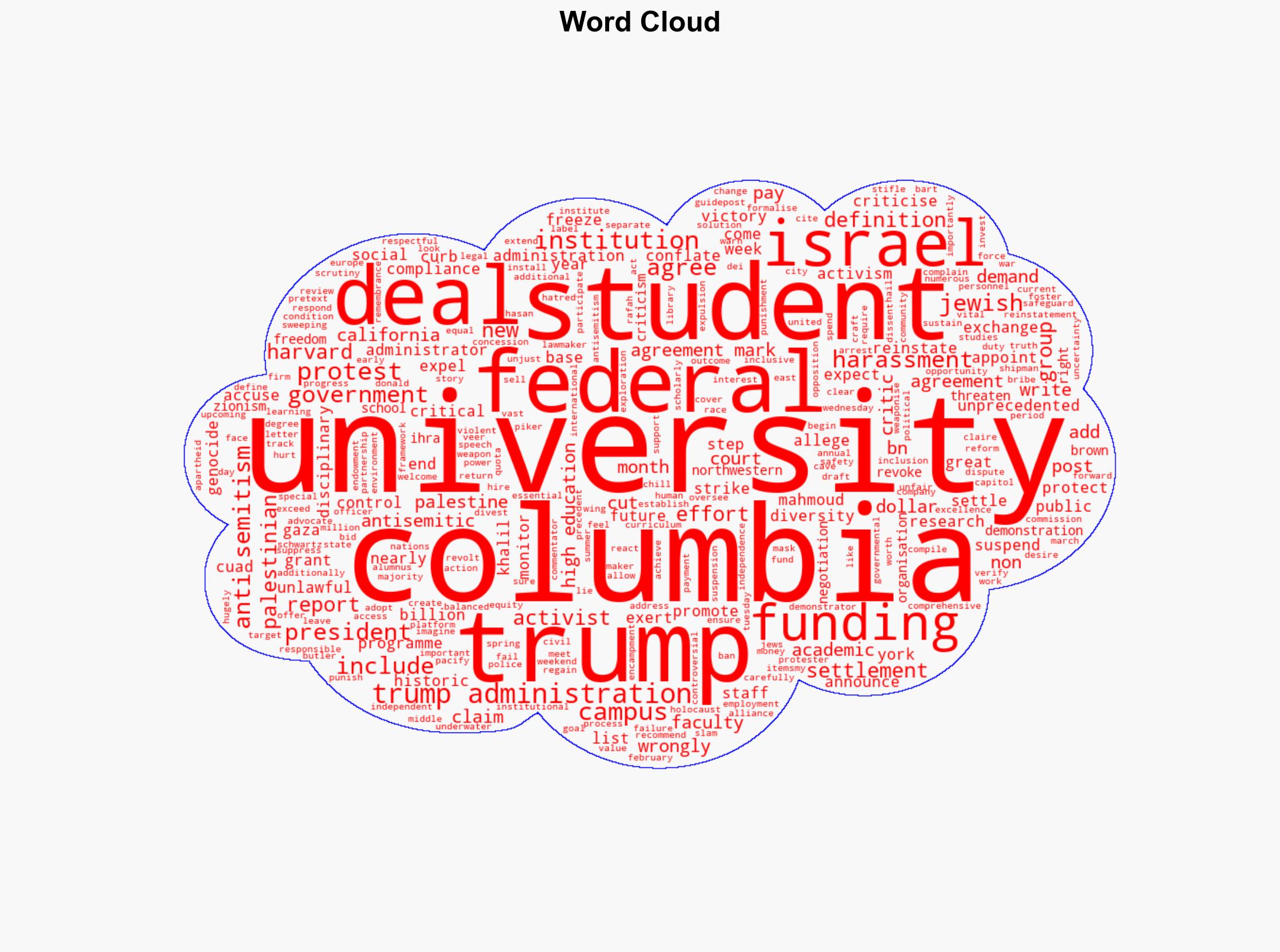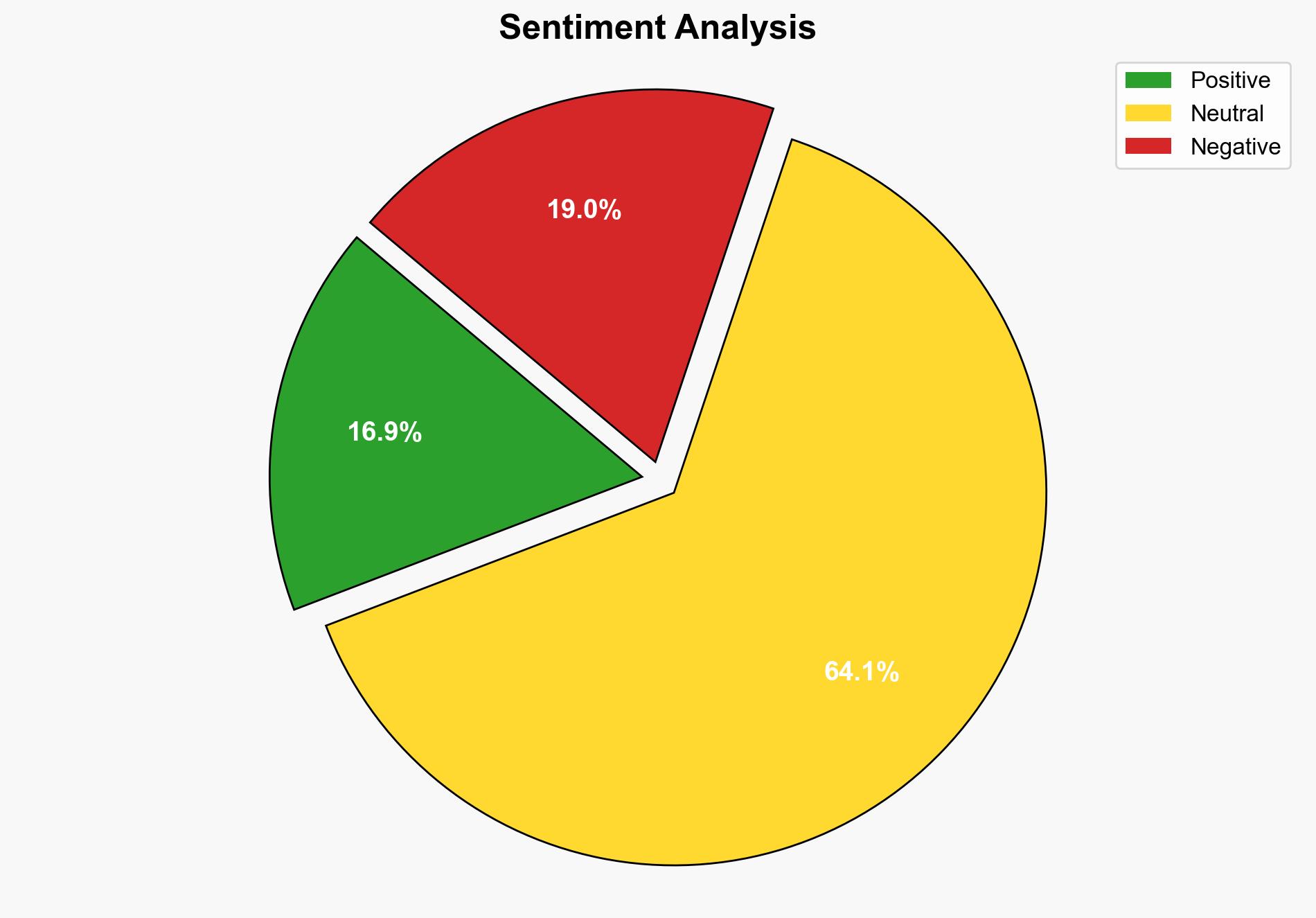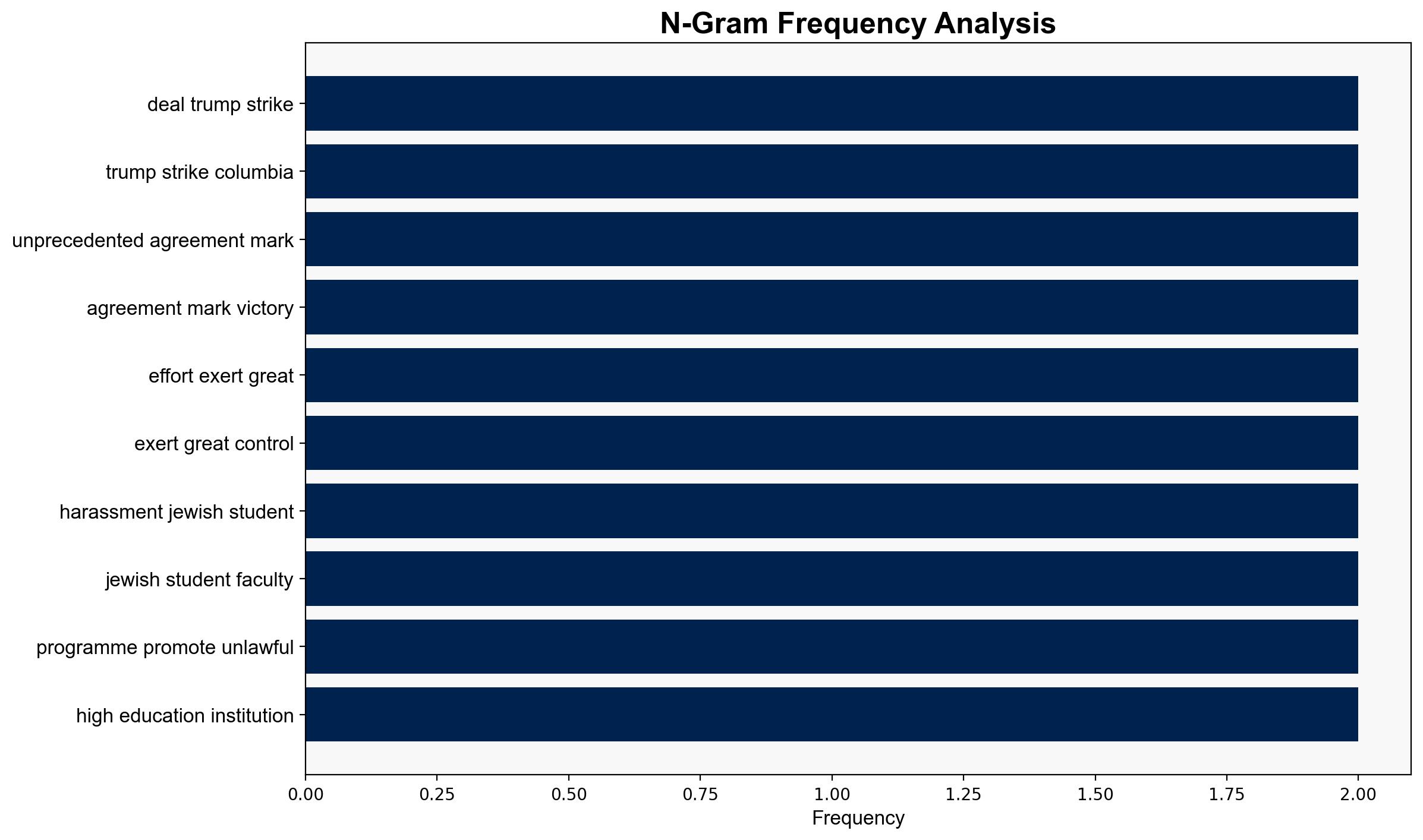Whats in the 200m deal Trump has struck with Columbia University – Al Jazeera English
Published on: 2025-07-24
Intelligence Report: What’s in the $200M Deal Trump Has Struck with Columbia University – Al Jazeera English
1. BLUF (Bottom Line Up Front)
The agreement between Columbia University and the Trump administration is primarily driven by political motivations to assert control over academic institutions and address allegations of anti-Semitism. The hypothesis that this deal is a strategic maneuver to influence university policies is better supported. Confidence level: Moderate. Recommended action: Monitor compliance and potential impacts on academic freedom and campus activism.
2. Competing Hypotheses
1. **Political Control Hypothesis**: The deal is a strategic move by the Trump administration to exert political influence over Columbia University, ensuring compliance with federal policies and addressing allegations of anti-Semitism.
2. **Financial Restoration Hypothesis**: The primary motivation is financial, with Columbia University seeking to restore access to federal funding and grants, necessitating compliance with government demands as a secondary concern.
Using ACH 2.0, the Political Control Hypothesis is better supported due to the emphasis on compliance measures and the historical context of the Trump administration’s focus on campus activism.
3. Key Assumptions and Red Flags
– **Assumptions**: The Political Control Hypothesis assumes that the Trump administration prioritizes political influence over financial considerations. The Financial Restoration Hypothesis assumes that financial motivations are paramount for Columbia University.
– **Red Flags**: Lack of detailed information on the specific terms of compliance and potential bias in reporting due to political affiliations. Possible conflation of anti-Israel sentiment with anti-Semitism.
4. Implications and Strategic Risks
– **Political Risks**: Potential backlash from academic communities and student activists could escalate tensions on campus.
– **Economic Risks**: The deal may set a precedent for other universities, impacting federal funding dynamics.
– **Geopolitical Risks**: The agreement could influence U.S.-Israel relations and perceptions of American academic institutions abroad.
5. Recommendations and Outlook
- Monitor Columbia University’s compliance with the agreement and any changes in campus policies.
- Engage with student and faculty groups to assess impacts on academic freedom.
- Scenario Projections:
- Best Case: Compliance leads to improved campus climate and restored funding without compromising academic freedom.
- Worst Case: Increased tensions and protests lead to further federal scrutiny and funding cuts.
- Most Likely: Partial compliance with ongoing debates over academic freedom and political influence.
6. Key Individuals and Entities
– Donald Trump
– Columbia University
– Claire Shipman (Acting President of Columbia University)
– Bart Schwartz (Compliance Firm Guidepost Solutions)
7. Thematic Tags
national security threats, academic freedom, political influence, U.S.-Israel relations




